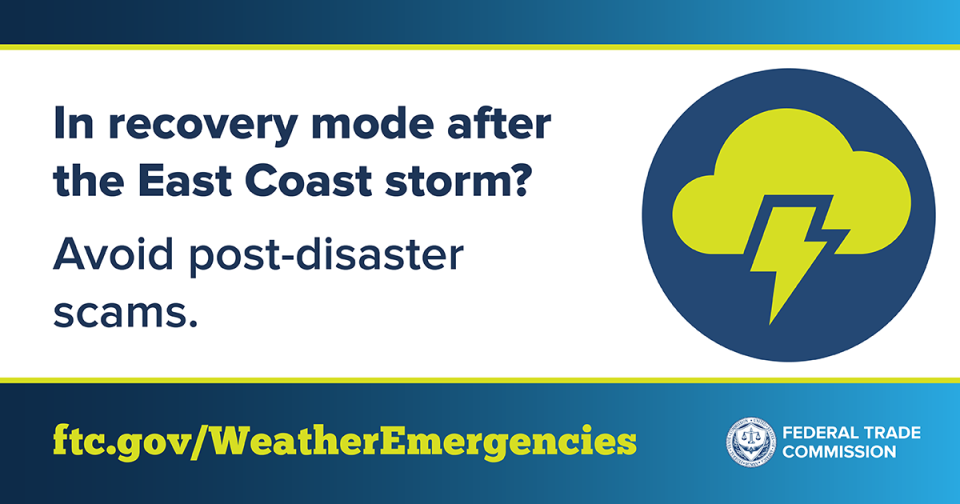Experience tells us that scammers will follow the record-setting winds, rainfall, and storm surge that have left thousands of East Coast residents, from Florida to Maine, under water or without power. As the waters recede, scammers will try to take advantage of people doing their best to recover, trying to steal money and personal information. So how do you protect yourself and those around you?
In the aftermath of a storm, there are a few first steps to help you get back on track and avoid disaster recovery scams.
- Find out what your home, health, or other insurance policies will pay for. Some will cover costs for temporary shelter, clothing, and other items. Ask your insurance company about the next steps to assess the damage.
- Spot impersonator scams. Scammers sometimes pretend to be safety inspectors, government officials trying to help you, or utility workers who say immediate work is required. Ask for identification to verify who you are dealing with — before you pay or share personal information like your Social Security or account numbers.
- Never pay to get government assistance. If someone wants money to help you qualify for FEMA funds or a grant, it’s a scam. Download the FEMA Mobile App to get alerts and information.
- Never pay for repairs in full until the work is completed, and you’re satisfied with the job. Don’t hire anyone who show up claiming to offer recovery services, but demand cash or advance payments.
Find more at ftc.gov/WeatherEmergencies and report weather-related scams to the FTC at ReportFraud.ftc.gov.


Stop the scammers everywhere! Thanks.